One more step
Please complete the security check to access www.btcmarkets.net
Why do I have to complete a CAPTCHA?
Completing the CAPTCHA proves you are a human and gives you temporary access to the web property.
What can I do to prevent this in the future?
If you are on a personal connection, like at home, you can run an anti-virus scan on your device to make sure it is not infected with malware.
If you are at an office or shared network, you can ask the network administrator to run a scan across the network looking for misconfigured or infected devices.
Cloudflare Ray ID: 422c222134a59023 • Your IP : 185.87.51.142 • Performance & security by Cloudflare
Openbazaar Co-Founder Expresses Frustration Over BTC Fees
The co-founder of Openbazaar, Washington Sanchez, has taken to Twitter to vent frustration with the high fees associated with BTC. Mr. Sanchez expressed regret for his previous BTC “maximalism,” and reinforced Openbazaar’s desire to place a greater emphasis on alternative cryptocurrencies.
Washington Sanchez Slams BTC Fees
Since 2014, Openbazaar has primarily facilitated payments on its platform in the form of bitcoin. In recent days, the company’s co-founder has expressed frustration with the fees associated with BTC payments, and the process and outcome of the scaling debate surrounding bitcoin.
“I personally wasted so much time in the bitcoin scaling civil war that I could have used designing/building dapps and opening up Openbazaar to multiple currencies. Instead, we had to wait for fees [in BTC] to cripple any consumer usage before we woke up,” Mr. Sanchez posted.
“The core lesson was to not let personal ideology interfere with designing what is best for open competition and experimentation within the marketplace,” he added.
”Openbazaar is supposed to be a free and open protocol for trade using cryptocurrency, a way for currencies and tokens to gain meaningful economic utility to acquire goods and services, and an entry point for people to earn/onboard. This vision cannot be limited to a single coin,” he concluded.
Openbazaar to Introduce Suite of Altcoins
 Openbazaar has announced that it will move to support a wide range of altcoins, with Mr. Sanchez tweeting that “With any luck, by the end of the year, [Openbazaar] will look radically different,” with the platform hoping to support users’ ability to “purchase/sell goods or services for BTC, BCH, LTC, ZEC, ETH,” in addition to “any ERC20 token.”
Openbazaar has announced that it will move to support a wide range of altcoins, with Mr. Sanchez tweeting that “With any luck, by the end of the year, [Openbazaar] will look radically different,” with the platform hoping to support users’ ability to “purchase/sell goods or services for BTC, BCH, LTC, ZEC, ETH,” in addition to “any ERC20 token.”
Despite the company’s desire to emphasize alternative payment methods, BTC still remains the most popular cryptocurrency on Openbazaar – with approximately 11,000 listings offering BTC as a means of payment. The second most popular currency is Bitcoin Cash with roughly 1,100 listings for BCH currently hosted on Openbazaar.
Do you agree with Mr. Sanchez’s assessment that high BTC fees have hurt adoption? Share your thoughts in the comments section below!
Images courtesy of Shutterstock, Openbazaar
Want to create your own secure cold storage paper wallet? Check our tools section.
Fee Structure
- 0%, if your past calendar month volume > 20,000 BTC.
- 0.02%, if volume > 15,000 BTC
- 0.04%, if volume > 6000 BTC
- 0.06%, if volume > 3000 BTC.
- 0.10%, if volume > 500 BTC.
- 0.15%, otherwise.
- FREE, for payments to email addresses during the promotional period
- FREE (plus a flat 0.001 BTC fee for bitcoin network fee for payments to external bitcoin wallet addresss)
For Deposits, LakeBanker fees will be deducted from the face amount/actual received amount. Please avoid overpayment. Withdrawal/payment LakeBanker fees will be deducted from your remaining balance first, then from the withdrawal amount if necessary.
In a deposit/withdrawal transaction, all bank fees (or third-party payment processor fees) are the responsibilities of the User instead of the LakeBanker. If neither is a LakeBanker, the sender and receiver usually need to take care of their own bank fees.
Don't like to pay LakeBanker fees for deposits/withdrawals? Become a LakeBanker yourself to earn some money instead of paying fees when making deposits and withdrawals! LakeBanker Activation Fee is 0.01 BTC. Click LakeBanker in the menu more details.
Trading fees are doubled for dark pool orders.
Trading fees displayed above are for each leg of cross trades with multiple legs. The match engine automatically finds the best price for your order, and may result in cross trades. This feature is to your best interest and cannot be turned off.
Email customer support and apply for fee discounts if your volumes qualify.
Account histories of the most recent 90 days are available on our website and via API. It's recommended that you download and save the records you need when they are available. History data over 90 days old are permanently destroyed and unrecoverable.
If you need to restore your deleted LakeBTC account, please contact customer support and the Account Restoration Fee is 0.1 BTC.
All LakeBanker fees for deposits/withdrawals are dynamic and they are based on a matrix of factors. They vary from user to user, currency to currency, payment method to payment method. They can even be negative (aka incentives) in some cases. It's difficult to provide an estimate. When you submit your request, your will see the actual fee for your particular request before continuing.
Our match engine and accounting book keeping algorithms have been very reliable and accurate since 2013. If for whatever reason you still believe your balances are off, contact customer support and pay the Account Research Fee of 0.01 BTC. Our staff can manually prepare all the raw book entries of your account for the past 30 days.
All fees are subject to change. LakeBTC reserves the right to modify the terms in our sole discretion at any time.
Transaction fees
Transaction fees are a fee that spenders may include in any Bitcoin transaction. The fee may be collected by the miner who includes the transaction in a block.
Every Bitcoin transaction spends zero or more bitcoins to zero or more recipients. The difference between the amount being spent and the amount being received is the transaction fee (which must be zero or more).
Bitcoin's design makes it easy and efficient for the spender to specify how much fee to pay, whereas it would be harder and less efficient for the recipient to specify the fee, so by custom the spender is almost always solely responsible for paying all necessary Bitcoin transaction fees.
When a miner creates a block proposal, the miner is entitled to specify where all the fees paid by the transactions in that block proposal should be sent. If the proposal results in a valid block that becomes a part of the best block chain, the fee income will be sent to the specified recipient. If a valid block does not collect all available fees, the amount not collected are permanently destroyed; this has happened on more than 1,000 occasions from 2011 to 2017, [1] [2] with decreasing frequency over time.
The market for block space

The minimum fee necessary for a transaction to confirm varies over time and arises from the intersection of supply and demand in Bitcoin's free market for block space. [3] On the supply size, Bitcoin has a maximum block size (currently one million vbytes) that limits the maximum amount of transaction data that can be added to a block.
However, Bitcoin blocks are not produced on a fixed schedule—the system targets an average of one block every 10 minutes over long periods of time but, over short periods of time, a new block can arrive in less than a second or more than an hour after the previous block. As the number of blocks received in a period of time varies, so does the effective maximum block size. For example, in the illustration below we see the average time between blocks based on the time they were received by a node during a one day period (left axis) and the corresponding effective maximum block size implied by that block production rate (right axis, in million vbytes):
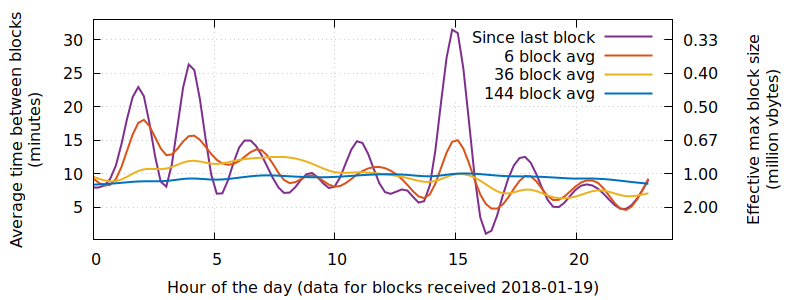
During periods of higher effective maximum block sizes, this natural and unpredictable variability means that transactions with lower fees have a higher than normal chance of getting confirmed—and during periods of lower effective maximum block sizes, low-fee transactions have a lower than normal chance of getting confirmed.
On the demand side of Bitcoin's free market for block space, each spender is under unique constraints when it comes to spending their bitcoins. Some are willing to pay high fees; some are not. Some desire fast confirmation; some are content with waiting a while. Some use wallets with excellent dynamic fee estimation; some do not. In addition, demand varies according to certain patterns, with perhaps the most recognizable being the weekly cycle where fees increase during weekdays and decrease on the weekend:
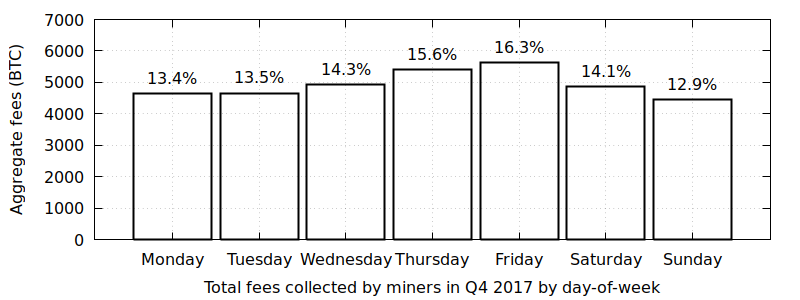
Another less recognizable cycle is the intra-day cycle where fees wax and wane during the day:
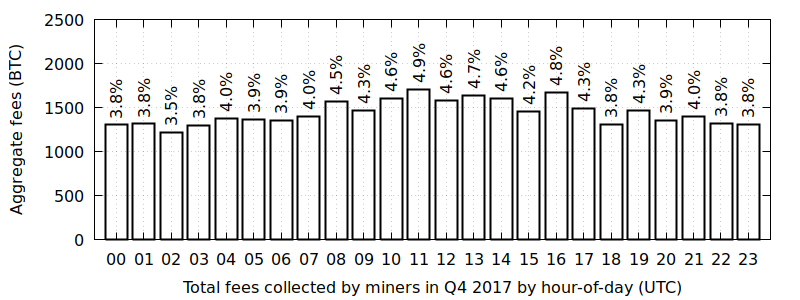
These variations in supply and demand create a market for block space that allows users to make a trade-off between confirmation time and cost. Users with high time requirements may pay a higher than average transaction fee to be confirmed quickly, while users under less time pressure can save money by being prepared to wait longer for either a natural (but unpredictable) increase in supply or a (somewhat predictable) decrease in demand.
It is envisioned that over time the cumulative effect of collecting transaction fees will allow those creating new blocks to "earn" more bitcoins than will be mined from new bitcoins created by the new block itself. This is also an incentive to keep trying to create new blocks as the creation of new bitcoins from the mining activity goes towards zero in the future. [4]
Perhaps the most important factor affecting how fast a transaction gets confirmed is its fee rate (often spelled feerate). This section describes why feerates are important and how to calculate a transaction's feerate.
Bitcoin transaction vary in size for a variety of reasons. We can easily visualize that by drawing four transactions side-by-side based on their size (length) with each of our examples larger than the previous one:

This method of illustrating length maxes it easy to also visualize an example maximum block size limit that constrains how much transaction data a miner can add to an individual block:

Since Bitcoin only allows whole transactions to be added to a particular block, at least one of the transactions in the example above can't be added to the next block. So how does a miner select which transactions to include? There's no required selection method (called policy) and no known way to make any particular policy required, but one strategy popular among miners is for each individual miner to attempt to maximize the amount of fee income they can collect from the transactions they include in their blocks.
We can add a visualization of available fees to our previous illustration by keeping the length of each transaction the same but making the area of the transaction equal to its fee. This makes the height of each transaction equal to the fee divided by the size, which is called the feerate:
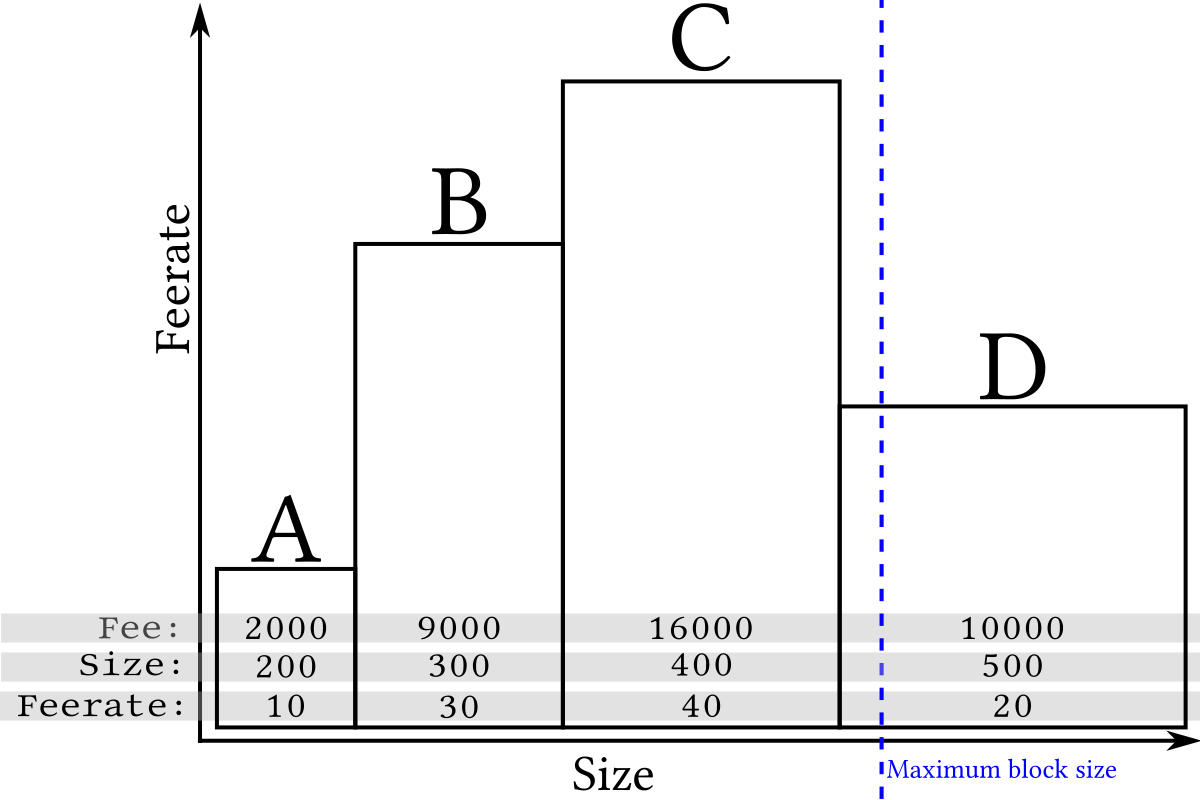
Although long (wide) transactions may contain more total fee, the high-feerate (tall) transactions are the most profitable to mine because their area is greatest compared to the amount of space (length) they take up in a block. For example, compare transaction B to transaction D in the illustration above. This means that miners attempting to maximize fee income can get good results by simply sorting by feerate and including as many transactions as possible in a block:
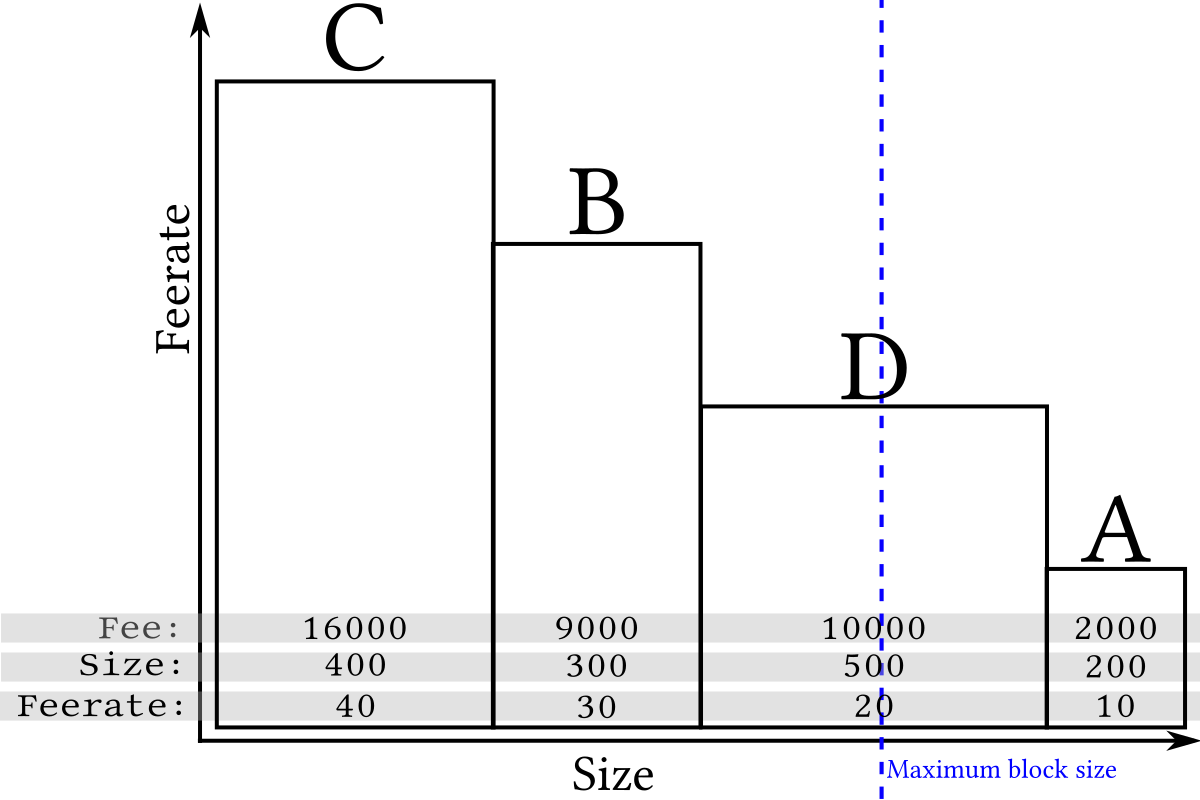
Because only complete transactions can be added to a block, sometimes (as in the example above) the inability to include the incomplete transaction near the end of the block frees up space for one or more smaller and lower-feerate transactions, so when a block gets near full, a profit-maximizing miner will often ignore all remaining transactions that are too large to fit and include the smaller transactions that do fit (still in highest-feerate order):
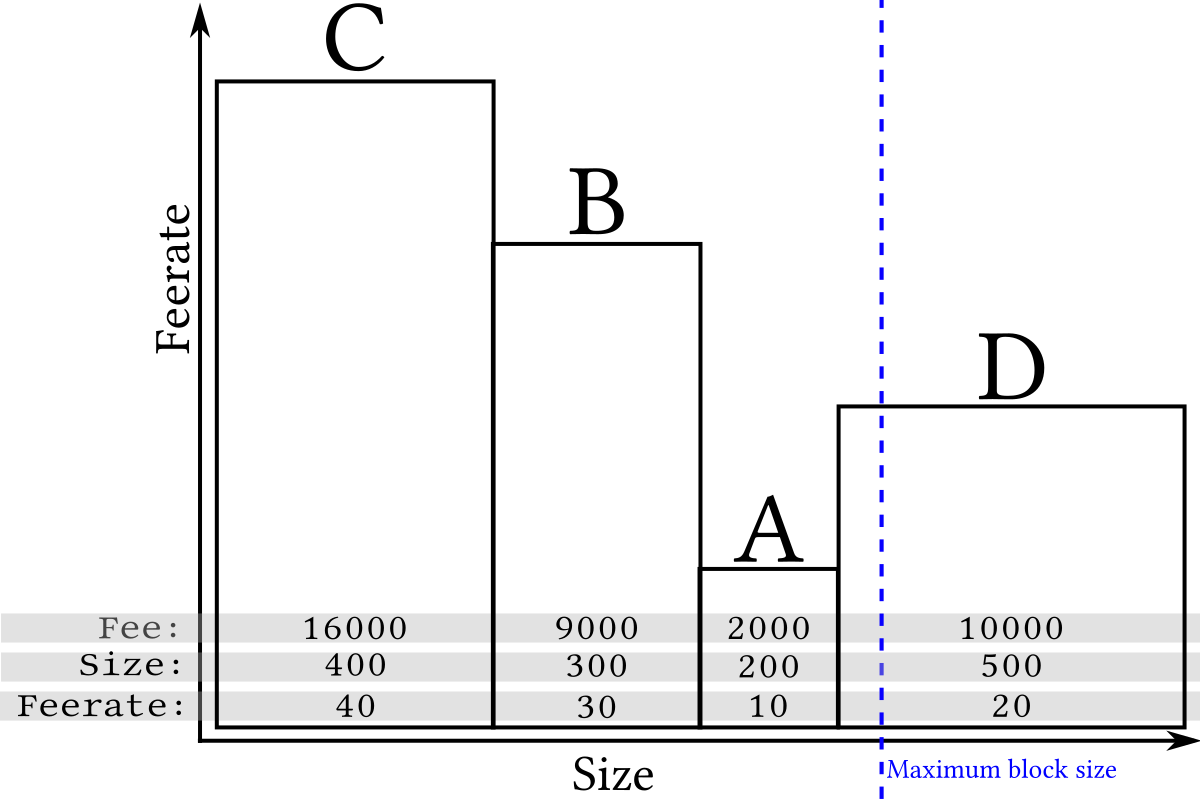
Excluding some rare and rarely-significant edge cases, the feerate sorting described above maximizes miner revenue for any given block size as long as none of the transactions depend on any of the other transactions being included in the same block (see the next section, feerates for dependent transactions, for more information about that).
To calculate the feerate for your transaction, take the fee the transaction pays and divide that by the size of the transaction (currently based on weight units or vbytes but no longer based on bytes). For example, if a transaction pays a fee of 2,250 nanobitcoins and is 225 vbytes in size, its feerate is 2,250 divided by 225, which is 10 nanobitcoins per vbyte (this happens to be the minimum fee Bitcoin Core Wallet will pay by default).
When comparing to the feerate between several transactions, ensure that the units used for all of the measurements are the same. For example, some tools calculate size in weight units and others use vbytes; some tools also display fees in a variety of denominations.
Feerates for dependent transactions (child-pays-for-parent)
Bitcoin transactions can depend on the inclusion of other transactions in the same block, which complicates the feerate-based transaction selection described above. This section describes the rules of that dependency system, how miners can maximize revenue while managing those dependencies, and how bitcoin spenders can use the dependency system to effectively increase the feerate of unconfirmed transactions.
Each transaction in a block has a sequential order, one transaction after another. Each block in the block chain also has a sequential order, one block after another. This means that there's a single sequential order to every transaction in the best block chain.
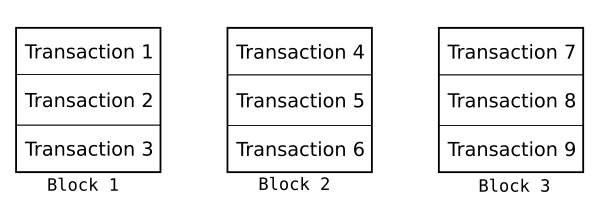
One of Bitcoin's consensus rules is that the transaction where you receive bitcoins must appear earlier in this sequence than the transaction where you spend those bitcoins. For example, if Alice pays Bob in transaction A and Bob uses those same bitcoins to pay Charlie in transaction B, transaction A must appear earlier in the sequence of transactions than transaction B. Often this is easy to accomplish because transaction A appears in an earlier block than transaction B:
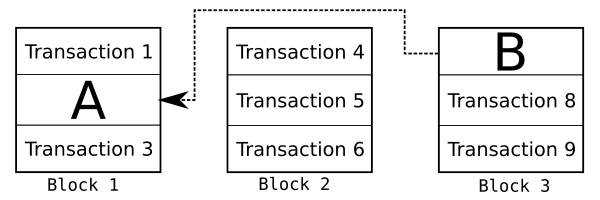
But if transaction A and B both appear in the same block, the rule still applies: transaction A must appear earlier in the block than transaction B.
This complicates the task of maximizing fee revenue for miners. Normally, miners would prefer to simply sort transactions by feerate as described in the feerate section above. But if both transaction A and B are unconfirmed, the miner cannot include B earlier in the block than A even if B pays a higher feerate. This can make sorting by feerate alone less profitable than expected, so a more complex algorithm is needed. Happily, it's only slightly more complex.
For example, consider the following four transactions that are similar to those analyzed in the preceding feerate section:
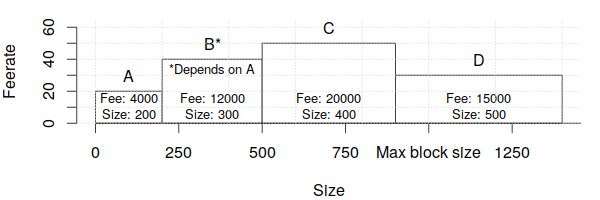
To maximize revenue, miners need a way to compare groups of related transactions to each other as well as to individual transactions that have no unconfirmed dependencies. To do that, every transaction available for inclusion in the next block has its feerate calculated for it and all of its unconfirmed ancestors. In the example, this means that transaction B is now considered as a combination of transaction B plus transaction A:
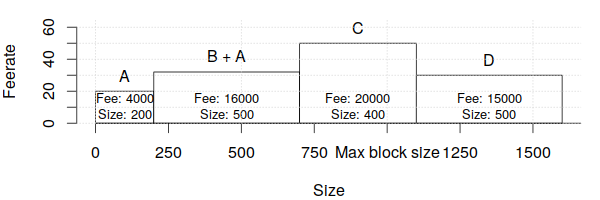
Note that this means that unconfirmed ancestor transactions will be considered twice or more, as in the case of transaction A in our example which is considered once as part of the transaction B+A group and once on its own. We'll deal with this complication in a moment.
These transaction groups are then sorted in feerate order as described in the previous feerate section:
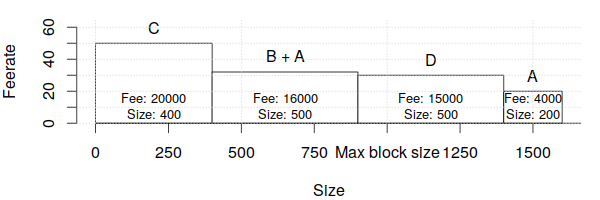
Any individual transaction that appears twice or more in the sorted list has its redundant copies removed. In the example case, we remove the standalone version of transaction A since it's already part of the transaction B+A group:
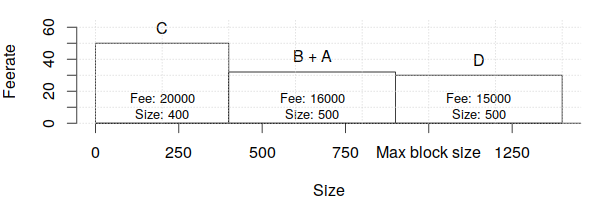
Finally, we see if we can squeeze in some smaller transactions into the end of the block to avoid wasting space as described in the previous feerate section. In this case, we can't, so no changes are made.
Except for some edge cases that are rare and rarely have a significant impact on revenue, this simple and efficient transaction sorting algorithm maximizes miner feerate revenue after factoring in transaction dependencies.
Note: to ensure the algorithm runs quickly, implementations such as Bitcoin Core limit the maximum number of related transactions that will be collected together for consideration as one group. As of Bitcoin Core 0.15.0 (released late 2017), this is a maximum of 25 transactions, although there have been proposals to increase this amount somewhat.
For spenders, miner use of transaction grouping means that if you're waiting for an unconfirmed transaction that pays too low a feerate (e.g. transaction A), you can create a child transaction spending an output of that transaction and which pays a much higher feerate (e.g. transaction B) to encourage miners to confirm both transactions in the same block. Wallets that explicitly support this feature often call it child pays for parent (CPFP) because the child transaction B helps pay for the parent transaction A.
To calculate the feerate for a transaction group, sum the fees paid by all the the group's unconfirmed transactions and divide that by the sum of the sizes for all those same transactions (in weight units or vbytes). For example, if transaction A has a fee of 1,000 nanobitcoins and a size of 250 vbytes and transaction B has a fee of 3,000 nanobitcoins and a size of 150 vbytes, the combined feerate is (1,000 + 3,000)/(250 + 150), which is 10 nanobitcoins per vbyte.
The idea behind ancestor feerate grouping goes back to at least 2013 and saw several different proposals to add it to Bitcoin Core, with it finally becoming available for production with the August 2016 release of Bitcoin Core 0.13.0. [5]
Reference Implementation
The following sections describe the behavior of the reference implementation as of version 0.12.0. Earlier versions treated fees differently, as do other popular implementations (including possible later versions).
Users can decide to pay a predefined fee rate by setting `-paytxfee= ` (or `settxfee ` rpc during runtime). A value of `n=0` signals Bitcoin Core to use floating fees. By default, Bitcoin Core will use floating fees.
Based on past transaction data, floating fees approximate the fees required to get into the `m`th block from now. This is configurable with `-txconfirmtarget= ` (default: `2`).
Sometimes, it is not possible to give good estimates, or an estimate at all. Therefore, a fallback value can be set with `-fallbackfee= ` (default: `0.0002` BTC/kB).
At all times, Bitcoin Core will cap fees at `-maxtxfee= ` (default: 0.10) BTC. Furthermore, Bitcoin Core will never create transactions smaller than the current minimum relay fee. Finally, a user can set the minimum fee rate for all transactions with `-mintxfee=`, which defaults to 1000 satoshis per kB.
Note that a typical transaction is 500 bytes.
Including in Blocks
This section describes how the reference implementation selects which transactions to put into new blocks, with default settings. All of the settings may be changed if a miner wants to create larger or smaller blocks containing more or fewer free transactions.
Then transactions that pay a fee of at least 0.00001 BTC/kb are added to the block, highest-fee-per-kilobyte transactions first, until the block is not more than 750,000 bytes big.
The remaining transactions remain in the miner's "memory pool", and may be included in later blocks if their priority or fee is large enough.
For Bitcoin Core 0.12.0 zero bytes [6] in the block are set aside for the highest-priority transactions. Transactions are added highest-priority-first to this section of the block.
The reference implementation's rules for relaying transactions across the peer-to-peer network are very similar to the rules for sending transactions, as a value of 0.00001 BTC is used to determine whether or not a transaction is considered "Free". However, the rule that all outputs must be 0.01 BTC or larger does not apply. To prevent "penny-flooding" denial-of-service attacks on the network, the reference implementation caps the number of free transactions it will relay to other nodes to (by default) 15 thousand bytes per minute.
US Search Mobile Web

Welcome to the Yahoo Search forum! We’d love to hear your ideas on how to improve Yahoo Search.
The Yahoo product feedback forum now requires a valid Yahoo ID and password to participate.
You are now required to sign-in using your Yahoo email account in order to provide us with feedback and to submit votes and comments to existing ideas. If you do not have a Yahoo ID or the password to your Yahoo ID, please sign-up for a new account.
If you have a valid Yahoo ID and password, follow these steps if you would like to remove your posts, comments, votes, and/or profile from the Yahoo product feedback forum.
- Vote for an existing idea ( )
- or
- Post a new idea…
- Hot ideas
- Top ideas
- New ideas
- Category
- Status
- My feedback
Improve your services
Your search engine does not find any satisfactory results for searches. It is too weak. Also, the server of bing is often off
I created a yahoo/email account long ago but I lost access to it; can y'all delete all my yahoo/yahoo account except for my newest YaAccount
I want all my lost access yahoo account 'delete'; Requesting supporter for these old account deletion; 'except' my Newest yahoo account this Account don't delete! Because I don't want it interfering my online 'gamble' /games/business/data/ Activity , because the computer/security program might 'scure' my Information and detect theres other account; then secure online activities/ business securing from my suspicion because of my other account existing will make the security program be 'Suspicious' until I'm 'secure'; and if I'm gambling online 'Depositing' then I need those account 'delete' because the insecurity 'Suspicioun' will program the casino game 'Programs' securities' to be 'secure' then it'll be 'unfair' gaming and I'll lose because of the insecurity can be a 'Excuse'. Hope y'all understand my explanation!
I want all my lost access yahoo account 'delete'; Requesting supporter for these old account deletion; 'except' my Newest yahoo account this Account don't delete! Because I don't want it interfering my online 'gamble' /games/business/data/ Activity , because the computer/security program might 'scure' my Information and detect theres other account; then secure online activities/ business securing from my suspicion because of my other account existing will make the security program be 'Suspicious' until I'm 'secure'; and if I'm gambling online 'Depositing' then I need those account 'delete' because the insecurity 'Suspicioun' will program the casino game 'Programs' securities' to be… more
chithidio@Yahoo.com
i dont know what happened but i can not search anything.
Golf handicap tracker, why can't I get to it?
Why do I get redirected on pc and mobile device?
Rahyaftco@yahoo.com
RYAN RAHSAD BELL literally means
Question on a link
In the search for Anaïs Nin, one of the first few links shows a picture of a man. Why? Since Nin is a woman, I can’t figure out why. Can you show some reason for this? Who is he? If you click on the picture a group of pictures of Nin and no mention of that man. Is it an error?
Repair the Yahoo Search App.
Yahoo Search App from the Google Play Store on my Samsung Galaxy S8+ phone stopped working on May 18, 2018.
I went to the Yahoo Troubleshooting page but the article that said to do a certain 8 steps to fix the problem with Yahoo Services not working and how to fix the problem. Of course they didn't work.
I contacted Samsung thru their Samsung Tutor app on my phone. I gave their Technican access to my phone to see if there was a problem with my phone that stopped the Yahoo Search App from working. He went to Yahoo and I signed in so he could try to fix the Yahoo Search App not working. He also used another phone, installed the app from the Google Play Store to see if the app would do any kind of search thru the app. The Yahoo Search App just wasn't working.
I also had At&t try to help me because I have UVERSE for my internet service. My internet was working perfectly. Their Technical Support team member checked the Yahoo Search App and it wouldn't work for him either.
We can go to www.yahoo.com and search for any topic or website. It's just the Yahoo Search App that won't allow anyone to do web searches at all.
I let Google know that the Yahoo Search App installed from their Google Play Store had completely stopped working on May 18, 2018.
I told them that Yahoo has made sure that their Yahoo members can't contact them about anything.
I noticed that right after I accepted the agreement that said Oath had joined with Verizon I started having the problem with the Yahoo Search App.
No matter what I search for or website thru the Yahoo Search App it says the following after I searched for
www.att.com.
WEBPAGE NOT AVAILABLE
This webpage at gttp://r.search.yahoo.com/_ylt=A0geJGq8BbkrgALEMMITE5jylu=X3oDMTEzcTjdWsyBGNvbG8DYmyxBHBvcwMxBHZ0aWQDTkFQUEMwxzEEc2VjA3NylRo=10/Ru=https%3a%2f%2fwww.att.att.com%2f/Rk=2/Es=plkGNRAB61_XKqFjTEN7J8cXA-
could not be loaded because:
net::ERR_CLEARTEXT_NOT_PERMITTED
I tried to search for things like www.homedepot.com. The same thing happened. It would say WEBPAGE NOT AVAILABLE. The only thing that changed were all the upper and lower case letters, numbers and symbols.
Then it would again say
could not be loaded because:
net::ERR_CLEARTEXT_NOT_PERMITTED
This is the same thing that happened when Samsung and At&t tried to do any kind of searches thru the Yahoo Search App.
Yahoo needs to fix the problem with their app.
Yahoo Search App from the Google Play Store on my Samsung Galaxy S8+ phone stopped working on May 18, 2018.
I went to the Yahoo Troubleshooting page but the article that said to do a certain 8 steps to fix the problem with Yahoo Services not working and how to fix the problem. Of course they didn't work.
I contacted Samsung thru their Samsung Tutor app on my phone. I gave their Technican access to my phone to see if there was a problem with my phone that stopped the Yahoo Search App from working. He went to Yahoo and… more
Openbazaar Co-Founder Expresses Frustration Over BTC Fees
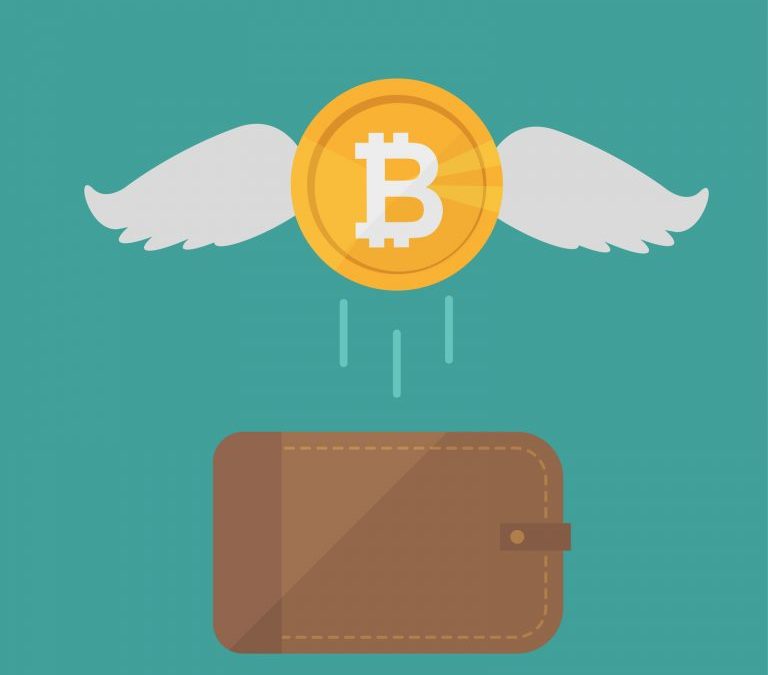
The co-founder of Openbazaar, Washington Sanchez, has taken to Twitter to vent frustration with the high fees associated with BTC. Mr. Sanchez expressed regret for his previous BTC “maximalism,” and reinforced Openbazaar’s desire to place a greater emphasis on alternative cryptocurrencies.
Washington Sanchez Slams BTC Fees
Since 2014, Openbazaar has primarily facilitated payments on its platform in the form of bitcoin. In recent days, the company’s co-founder has expressed frustration with the fees associated with BTC payments, and the process and outcome of the scaling debate surrounding bitcoin.
“I personally wasted so much time in the bitcoin scaling civil war that I could have used designing/building dapps and opening up Openbazaar to multiple currencies. Instead, we had to wait for fees [in BTC] to cripple any consumer usage before we woke up,” Mr. Sanchez posted.
“The core lesson was to not let personal ideology interfere with designing what is best for open competition and experimentation within the marketplace,” he added.
”Openbazaar is supposed to be a free and open protocol for trade using cryptocurrency, a way for currencies and tokens to gain meaningful economic utility to acquire goods and services, and an entry point for people to earn/onboard. This vision cannot be limited to a single coin,” he concluded.
Openbazaar to Introduce Suite of Altcoins
Openbazaar has announced that it will move to support a wide range of altcoins, with Mr. Sanchez tweeting that “With any luck, by the end of the year, [Openbazaar] will look radically different,” with the platform hoping to support users’ ability to “purchase/sell goods or services for BTC, BCH, LTC, ZEC, ETH,” in addition to “any ERC20 token.”
Despite the company’s desire to emphasize alternative payment methods, BTC still remains the most popular cryptocurrency on Openbazaar – with approximately 11,000 listings offering BTC as a means of payment. The second most popular currency is Bitcoin Cash with roughly 1,100 listings for BCH currently hosted on Openbazaar.
Do you agree with Mr. Sanchez’s assessment that high BTC fees have hurt adoption? Share your thoughts in the comments section below!
Images courtesy of Shutterstock, Openbazaar
Want to create your own secure cold storage paper wallet? Check our tools section.
WUSD/BTC
BTC/WAVES
BTC/ETH
ETH/WAVES
ETH/WAVES
Why choose Tidex?
the simplest fee structure possible; 0,1% for market makers, 0,1% market takers fee.
for crossplatform trading.
is our primary concern, risk management and different internal control measures.
Support Center
will be happy to help you 24/7 with any question.
User Friendly
interface on your computer, phone or tablet.
FIX Protocol
is coming soon to make your trading experience more enjoyable
Simple, fast and reliable multifunctional platform with endless possibilities
Tidex has pioneered the concept of seamless trading of different cryptocurrency assets. Thousands of traders anywhere in the world can get access to a simple way to trade not only Bitcoin and Ethereum but any of other 70+ coins that are currently listed.


Buy, sell, margin, exchange!
Quick and easy deposits, but we take your security and privacy very seriously.
Fair prices for trading and instant executions, with only 0.1% fees for any trades you can trade any time of the day and any of the coins, Ethereum and Waves based tokens or cross pairs you can think of.
We can leverage your strategy for much greater profits!
We employed a suite of tools to monitor and edit the order types for smarter investment decisions. We believe that with the trading volume, supported cryptocurrencies and worldwide trust there is no better option for a savvy investor than Tidex.
В© Tidex
All rights reserved
Disclaimer
The information contained in https://tidex.com/ is for general information purposes only. The information is provided by https://tidex.com/ and while we endeavour to keep it up to date and correct, we make no representations or warranties of any kind, express or implied, about the completeness, accuracy, reliability, suitability or availability with respect to https://tidex.com/ or the information, products, services, or related graphics contained on https://tidex.com/ for any purpose.
Any reliance you place on such information is therefore strictly at your own risk.
HitBTC Charges Users a Fee of 0.0003 BTC to Deposit Bitcoin
People who have paid attention to the Bitcoin network issues will know that companies have been forced to make unpopular decisions. For instance, BitPay began charging a second fee on top of regular mining costs to process Bitcoin payments. HitBTC is now charging all users a Bitcoin deposit fee, which is a very surprising turn of events. It is certainly something most people will not be too happy with, but until Bitcoin’s network issues are resolved, this situation will remain unchanged.
HitBTC Demands a Bitcoin Deposit Fee
Anyone who has ever used a cryptocurrency exchange will be aware of the most common fees. There’s a miner fee to include in your transaction when moving money to an exchange. When you attempt to withdraw funds, there’s typically another fee to be taken into account. Conducting trades on such platforms is usually subject to maker and taker fees as well. It is not the cheapest experience by any means, but things can always get worse.
More specifically, the HitBTC exchange has made a change which most people won’t appreciate all that much. Users are now forced to pay a Bitcoin deposit fee. While it is understandable that the company is introducing such a thing, it will lose a lot of customers because of it regardless. The fixed fee for all Bitcoin deposits is a problem not just because it is an additional cost, but also because it is in place for the foreseeable future.
Right now, this fee is 0.0003 BTC. It is unclear if it will remain fixed or change depending on the price of Bitcoin. At current Bitcoin prices, this means users will pay US$4 for every Bitcoin deposit they make to HitBTC. This is a very controversial business decision which hopefully won’t make its way to other exchanges in the future. After all, users already pay a miner fee when sending money, and anything on top of that just seems excessive.
Considering that HitBTC’s users were warned less than 24 hours in advance of the change, it is obvious a lot of users will not be too happy about this decision. It is evident that HitBTC is going through some changes right now, and most of them are not positive by any means. For now, these deposit fees will be deducted from incoming BTC amounts. Any deposit lower than the fee will be used to pay the fee and not be refunded to customers.
If other cryptocurrency exchanges were to implement similar practices, moving money to exchanges would quickly become far too expensive for most people. After all, the regular miner fee is already in the double digits right now. Sending US$50 worth of Bitcoin to HitBTC, for example, is now subject to at least US$14 in fees. It is a very expensive way of moving money around the world, and something will need to change to alleviate this problem in the future.
For its part, the company claims this decision was made to strengthen all Bitcoin processes on the HitBTC platform. Moreover, the company aims to “provide stability in the functioning of the major cryptocurrency.” Nevertheless, it is likely we will see people move away from HitBTC moving forward, as its withdrawal fees have been quite high in the past few weeks. Adding Bitcoin deposit fees on top of it all will not do them any favors whatsoever.
About The Author
JP Buntinx is a FinTech and Bitcoin enthusiast living in Belgium. His passion for finance and technology made him one of the world's leading freelance Bitcoin writers, and he aims to achieve the same level of respect in the FinTech sector.
Openbazaar Co-Founder Expresses Frustration Over BTC Fees
The co-founder of Openbazaar, Washington Sanchez, has taken to Twitter to vent frustration with the high fees associated with BTC. Mr. Sanchez expressed regret for his previous BTC “maximalism,” and reinforced Openbazaar’s desire to place a greater emphasis on alternative cryptocurrencies.
Washington Sanchez Slams BTC Fees
Since 2014, Openbazaar has primarily facilitated payments on its platform in the form of bitcoin. In recent days, the company’s co-founder has expressed frustration with the fees associated with BTC payments, and the process and outcome of the scaling debate surrounding bitcoin.
“I personally wasted so much time in the bitcoin scaling civil war that I could have used designing/building dapps and opening up Openbazaar to multiple currencies. Instead, we had to wait for fees [in BTC] to cripple any consumer usage before we woke up,” Mr. Sanchez posted.
“The core lesson was to not let personal ideology interfere with designing what is best for open competition and experimentation within the marketplace,” he added.
”Openbazaar is supposed to be a free and open protocol for trade using cryptocurrency, a way for currencies and tokens to gain meaningful economic utility to acquire goods and services, and an entry point for people to earn/onboard. This vision cannot be limited to a single coin,” he concluded.
Openbazaar to Introduce Suite of Altcoins
 Openbazaar has announced that it will move to support a wide range of altcoins, with Mr. Sanchez tweeting that “With any luck, by the end of the year, [Openbazaar] will look radically different,” with the platform hoping to support users’ ability to “purchase/sell goods or services for BTC, BCH, LTC, ZEC, ETH,” in addition to “any ERC20 token.”
Openbazaar has announced that it will move to support a wide range of altcoins, with Mr. Sanchez tweeting that “With any luck, by the end of the year, [Openbazaar] will look radically different,” with the platform hoping to support users’ ability to “purchase/sell goods or services for BTC, BCH, LTC, ZEC, ETH,” in addition to “any ERC20 token.”
Despite the company’s desire to emphasize alternative payment methods, BTC still remains the most popular cryptocurrency on Openbazaar – with approximately 11,000 listings offering BTC as a means of payment. The second most popular currency is Bitcoin Cash with roughly 1,100 listings for BCH currently hosted on Openbazaar.
Do you agree with Mr. Sanchez’s assessment that high BTC fees have hurt adoption? Share your thoughts in the comments section below!
Images courtesy of Shutterstock, Openbazaar
Want to create your own secure cold storage paper wallet? Check our tools section.
All our fees are transparent, upfront and listed when you make a purchase
Buy & Sell fees
When you are on the instant Buy / Sell page, the exact fee you will pay is shown on the page.
Advanced view and API fees
Fees on Advanced view and API depends on your current volume
Exchange 30 days volume 907.89 BTC
How are fees processed?
The fee discount calculation is based on the percentage of the total exchange volume that a user has taken part in over the past 30 calendar days. The discount calculation happens every 24 hours at UTC 00:00, and the resulting fee will be valid until the next calculation.
Withdrawals & Deposits
Do you have any questions?
Contact support directly by mail or by chat in right bottom corner of the website
Do you have problem with something?
Visit our Support page which will help solve your problem
Buy some Bitcoin, Ethereum, and Litecoin to begin using the future of money.



Комментариев нет:
Отправить комментарий